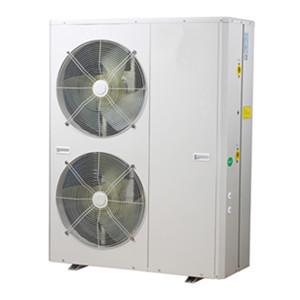Heat Pump Efficiency in Cold Weather
Heat pumps will play an important role in helping millions of ordinary households save money and reduce the carbon emissions associated with heating their homes.
Energy-efficient heat pumps offer significant energy savings compared to propane, oil, electric, pellet and wood-burning stoves. Southern states with milder winters were quick to adopt the technology, but northern states are now making the switch.
In the past, many northern homeowners were mainly concerned about the working condition of air source heat pumps in winter, especially in areas where temperatures continue to be cold. The good news is that modern heat pumps can keep your house warm and comfortable even on the coldest days of the year, and now come with attractive federal rebates and tax credits.
Heat pumps can work in cold climates
A properly installed and well-maintained heat pump can keep your home comfortable on even the coldest days of winter while using less energy than a traditional heating system. However, improperly installed heat pumps are much less efficient, so be sure to work with a local One Hour Heating and Air Conditioning technician to reap all the benefits of installing a heat pump in your home.
Heat pump efficiency and outdoor temperature
If a heat pump works fine under most conditions, at what temperature is a heat pump most efficient? First, outdoor temperatures do affect a heat pump's energy efficiency. Depending on the model, heat pumps tend to become less efficient when temperatures fall below 40 degrees Fahrenheit. At about 25 degrees, most heat pumps are still more efficient than a traditional furnace or boiler. The break-even point is usually around 15 degrees.
Your heat pump will still work in temperatures below freezing and below 15 degrees. It will continue to operate at temperatures below 0 degrees or lower. It's not as efficient as using a gas furnace during the coldest days of winter.

Use a backup heat source with a heat pump
When a heat pump becomes less efficient, homeowners in colder areas may choose to utilize a backup heat source to take over. Most people choose resistance heat in the form of an electric stove, boiler or radiator, although retaining an existing natural gas stove is also a common option. This is called a "dual fuel" solution and you'll use the cheapest heating source depending on the outside temperature, saving money and significantly reducing your carbon footprint since your gas furnace will only be used during the coldest days of the year.
Want to know how? The integrated smart thermostat automatically selects the most energy-efficient heat source! The system weighs the following factors:
1. Indoor heat settings
2. Outdoor temperature
3. Current energy rates (your kWh electricity bill, your gas company’s natural gas price)
4. Average and predicted run times based on your programming settings
Cold climate? Heat pumps further reduce energy costs!
More and more manufacturers are designing cold climate heat pumps to be as efficient at 5 degrees as they are at 47 degrees.
If you are considering purchasing a new heat pump and you live in a cold area, consider the following:
1. Look at historical data; how many days has your body temperature been below freezing? Below 0 degrees?
2. If your current heating system is in good condition, you can keep it as a backup heat source.
3. Have you addressed other energy efficiency upgrades in your home to get the most out of your heat pump? Consider checking your home for air leaks or improving your home's insulation.
Install your heat pump the right way
Trust One Hour Heating and Air Conditioning to help you choose the right heat pump for your home and install it correctly. No matter your climate, heat pumps are an environmentally friendly alternative to fossil fuels, and they will keep your family comfortable year-round.
Get more help
Leomon is a professional heat pump manufacturer. If you need to purchase an air source heat pump, please contact us. Our heat pump experts will give you the best advice.





